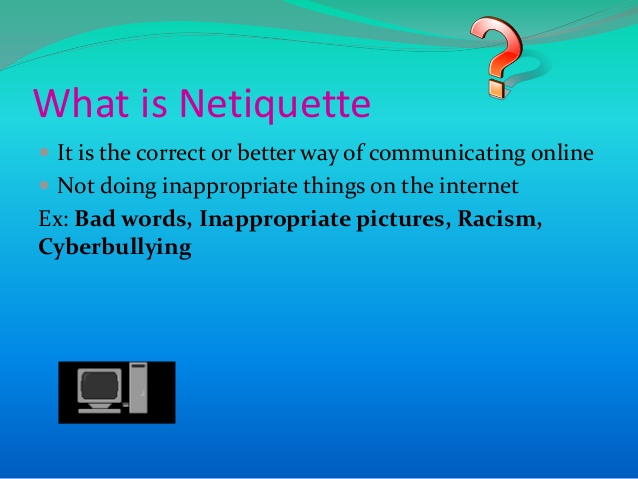Netiquette (do’s and don’ts with tips)

If you came to this page is because you use the Internet, and therefore handle even implicitly the concept of Netiquette . You may not know exactly what it is, but even without knowing it you use it daily in every action you take on the web.
As inhabitants of a society, we develop rules of each community that apply to both culture, education and other aspects of life in society. When a stranger wants to join our circle, it is understood that he must understand and accept community norms to somehow “fit in”. The Internet is somehow a virtual community of people connected, so it also has its particular rules, called Netiquette .
Broadly speaking, it could be said that a Netiquette is an adaptation of a rule of etiquette or behavior from the real world to the virtual world. Due to the different communication spaces that exist in the network, this concept has come into play when establishing the correct forms of interaction in the different services. Thus, there are forms of behavior accepted in one particular online environment that are rejected in others, just as it happens with forms of relationships in real life.
These tags can be particular to each medium or community, so theoretically there could be as many users on the network . Its creation can respond to stylistic criteria, norms of security and even to combat problems typical of the network like the spam. Thanks to their existence, users can distinguish what is “own” from their network from what is external or not appropriate to their standards.
What are the do’s and don’ts of netiquette when communicating online ?
Among the most common label standards in the network are:
- Respect the intonation corresponding to orality and translate it into writing.
- Maintain manners by introducing yourself and saying goodbye to the community (the typical “carefully” with which we say goodbye in each mail).
- Write appropriately, respecting the basic standards of writing. Avoiding unnecessary abbreviations or spelling errors stand out as the most important rules in this regard.
Its function basically is to guarantee coexistence in the network and allow online communications to be carried out in the most simple and humane way possible, adapting the usual code of each community to the virtual environment.





